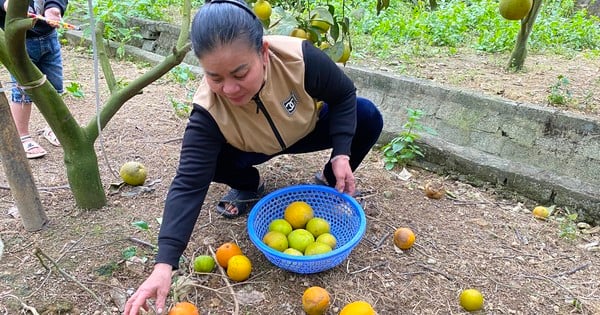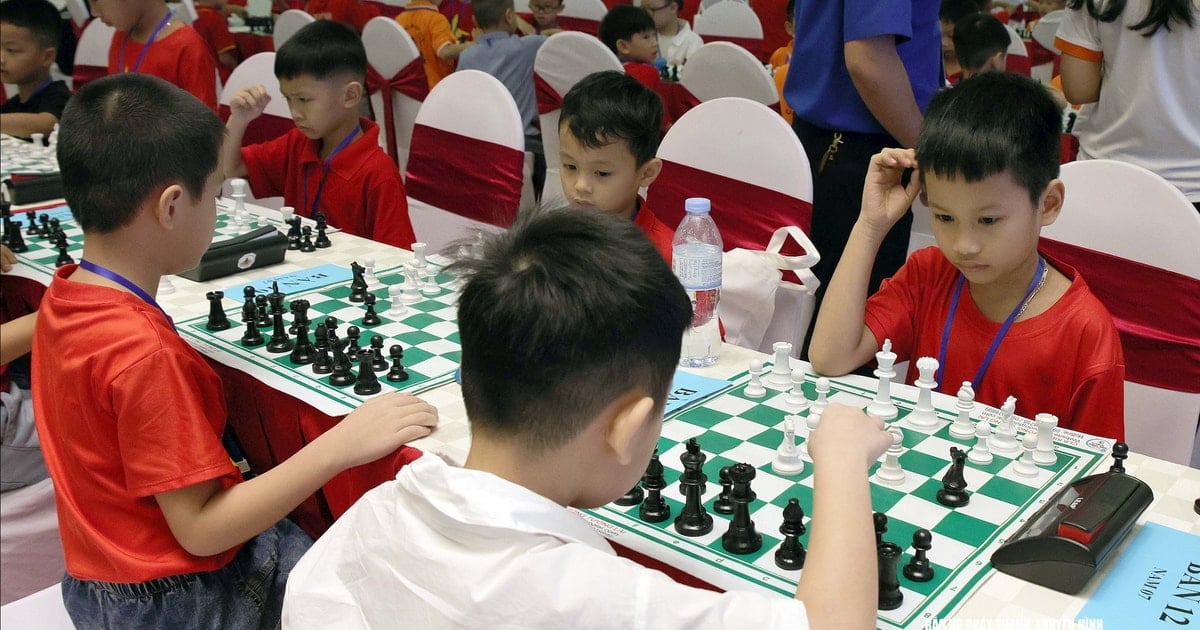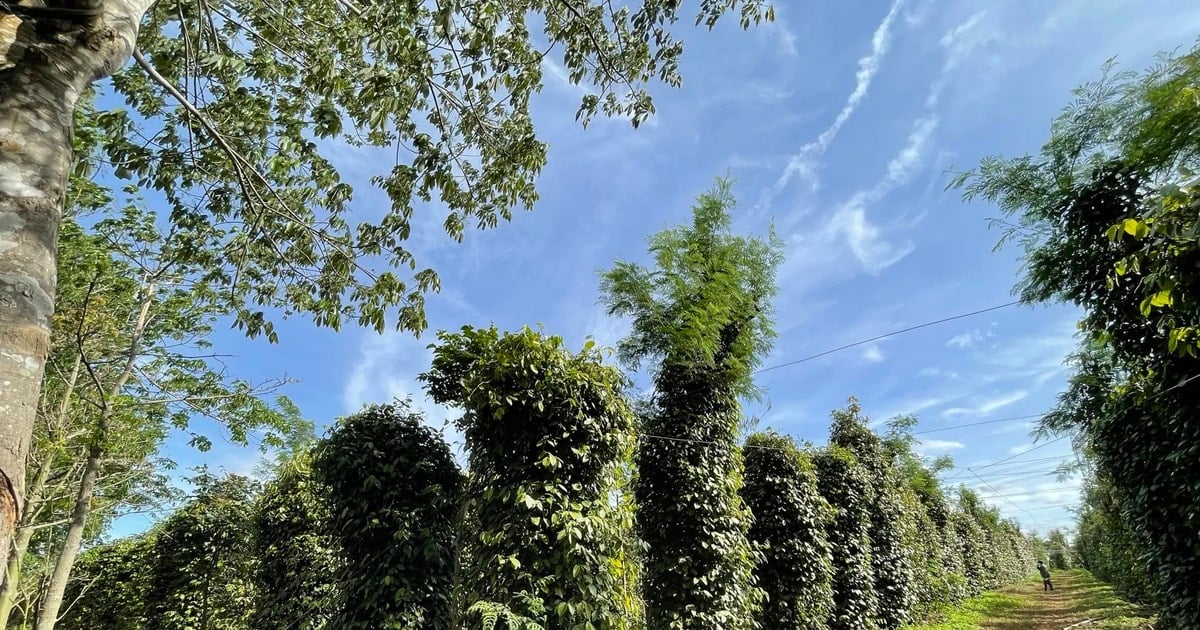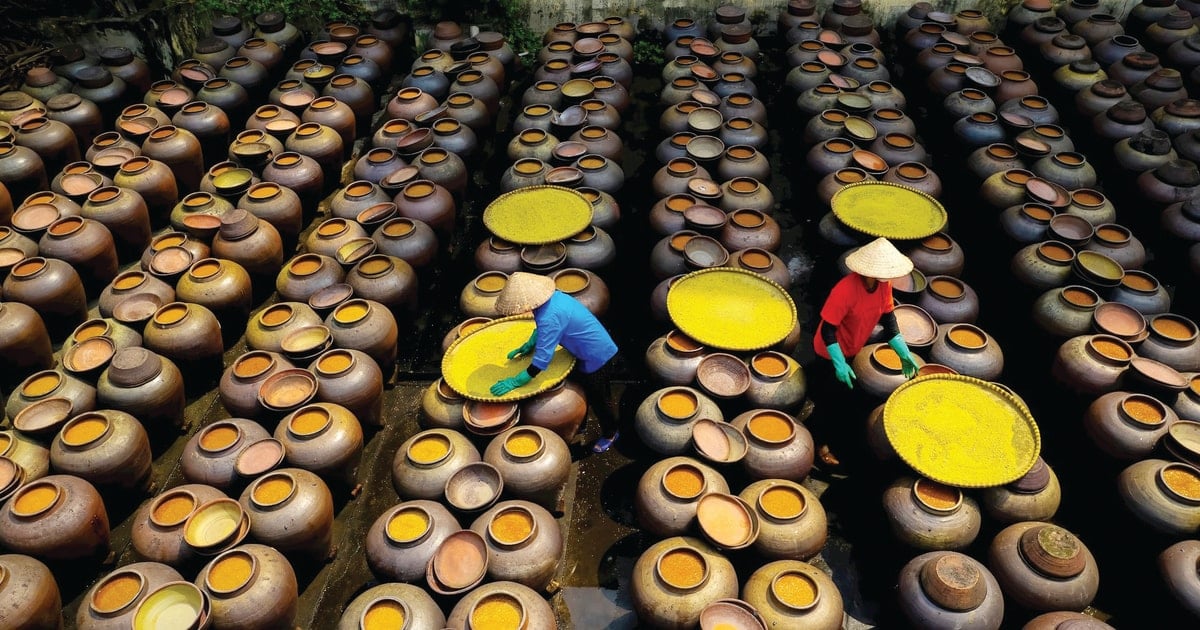Oranges fall off fruit en masse
From November 10th, the 3 hectares of oranges of Mr. Phan Van Bao's family in Dong Trung hamlet, Dong Thanh commune (Yen Thanh) began to be harvested. The orange garden is full of fruit, the fruit on the trees is ripe and golden, but under the roots, the ripe oranges are also scattered. "This year, fruit flies have caused damage since August, the density is 2-3 times higher than in previous years, in the hamlet, there are gardens where up to half of the fruit has fallen," said Mr. Bao.

For the past 3 months, he has used all kinds of measures from bait traps, light traps to catch fruit flies and moths, but the orange garden has been losing fruit for more than a month now and is still losing fruit. Up to now, his family has lost about 15% of the fruit yield in the garden, double the loss compared to previous years.
Yen Thanh district currently has 320 hectares of oranges, of which about 250 hectares are in the commercial period, being harvested, concentrated in the communes of Dong Thanh, Minh Thanh, Tien Thanh... Developed later, with good investment, most of this orange area has guaranteed productivity and quality. However, almost every year orange growers suffer damage due to fruit flies and moths.

Ms. Phan Thi Phuong - technical officer, Yen Thanh District Agricultural Service Center said: Normally, these two objects start to damage oranges from around the 15th day of the 7th lunar month, but this year they appeared and caused damage 1 month earlier; the quantity and level of damage are also greater, almost every orange garden is affected, especially the night moth, with about 80% of oranges dropping fruit due to night moth sucking.
“People have also actively used traps and lights to prevent the disease, but it has not been completely effective. In recent years, some orange growers such as Mr. Nguyen Canh Doan (Xuan Thanh commune), Nguyen Dinh An (Dong Thanh) ... have covered the oranges with mosquito nets, which has greatly reduced the fruit flies and moths, but the disadvantage is that during periods of heavy fog, fungi are brought to the tops, making it difficult to treat fungi in the next crop, so not many households have applied this method,” said Ms. Phan Thi Phuong.

Timely prevention by comprehensive measures
With 4 hectares of oranges, for several years now, Mrs. Thai Thi Hoa's family in Tong Doi hamlet, Thanh Duc commune (Thanh Chuong) has covered 2/3 of the garden with insect-proof nets. According to Mrs. Hoa, almost every year the orange garden loses fruit due to fruit flies and moths, but since covering it with nets, the problem has significantly improved.
The oranges are covered with white nylon nets, although the cost is more expensive than using tulle nets like in some other regions (about 200,000 VND/orange tree), but the nets are airy so they do not cause fungus on the top, and can be used for 3-4 years. "This year, fruit flies and forestry butterflies cause less damage, but there are more stink bugs and biting mosquitoes that cause damage from July, when the oranges start to taste sour. The oranges that are bitten by insects are all big, beautiful, and delicious, so it's a pity," said Ms. Hoa.

Thanh Duc Orange Cooperative currently has nearly 60 hectares of oranges in harvest. According to Mr. Pham Ba Nga - Director of the Cooperative, every year fruit flies and forestry butterflies cause damage to most orange gardens, this year the rate of fruit drop in the gardens is about 10 - 15%. Up to now, about 30% of the cooperative's orange area has been covered with insect-proof nets. However, due to the large area, high cost, and the fact that the tops are tied, making it difficult for the trees to grow, some households are still not "interested" in this method.
In the "golden age" of previous years, Nghe An had nearly 5,000 hectares of oranges, but currently, according to data from the provincial Department of Cultivation and Plant Protection, there are only about 1,800 hectares left in the province, concentrated in Thanh Chuong, Anh Son, Yen Thanh districts... Not only has the area decreased sharply, but in recent years, orange output has also been affected by the phenomenon of orange fruit falling, with many orange gardens in the districts of Con Cuong, Nghia Dan, Quy Hop... almost completely lost in some years. In addition to other causes such as fungal diseases, harmful insects such as fruit flies, moths... are one of the main threats that cause oranges to drop fruit en masse, affecting the productivity and quality of oranges.

Mr. Trinh Thach Lam - Head of Plant Protection Department, Department of Crop Production and Plant Protection of the province said: The most difficult thing in prevention is that fruit flies and forestry butterflies are all mobile objects, not fixed to cause damage in one place, so it is impossible to spray pesticides to prevent them, only traps, lights, fruit bags and mosquito nets can be used to prevent harmful insects; however, these are all manual methods, not very effective, and cannot be completely limited.
“To limit the damage caused by insects, as soon as the oranges begin to transform and accumulate sugar, preventive measures need to be taken early and regularly. For fallen fruits in the garden, it is necessary to clean them up because fallen, fermented ripe oranges attract insects.”
Mr. Trinh Thach Lam - Head of Plant Protection Department, Department of Crop Production and Plant Protection of the province
Source


































































































Comment (0)